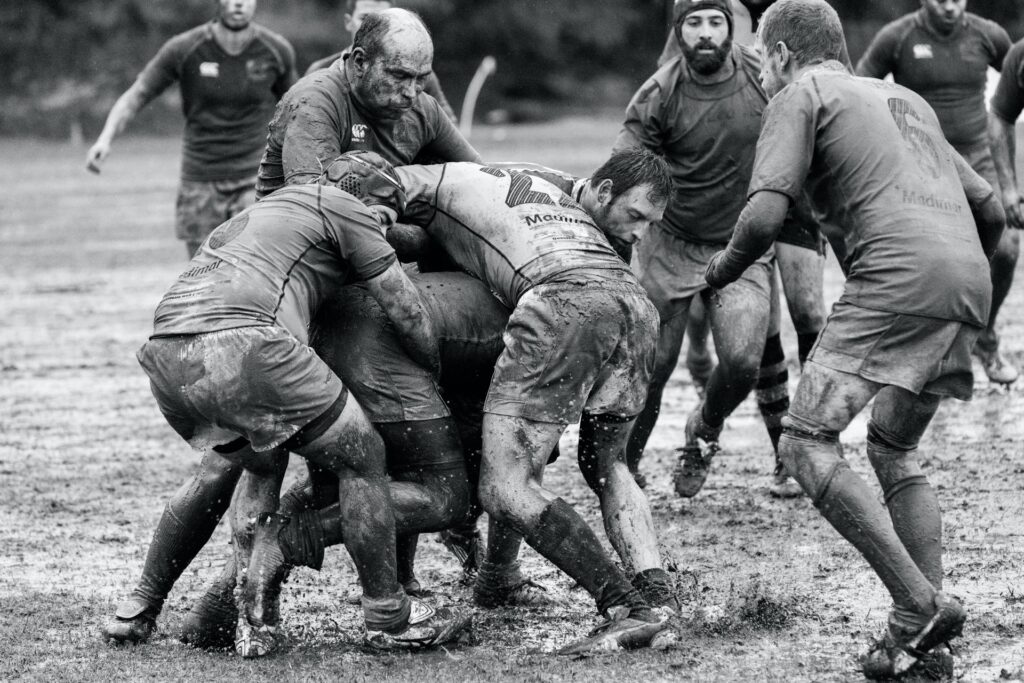Gaining the advantage in life
Throughout human evolution, men have supported each other in groups to gain a survival advantage. In other words, isolation meant death and there was strength in numbers when it came time to hunt wild animals or fight off rival tribes. The concept of sports evolved as men began to show off their hunting and warring abilities, and became even more organized with the ancient Greek Olympic games.
Today, competitive sports is one of the major sources of entertainment for men as it represents what some would call a primal urge: the fight to win. We revel in the glory of winning because it boosts our self-esteem, it’s exciting, and it’s an escape from the mundane tasks of everyday life. June 2021 was a great example of the $441 billion global sports industry taking the world be storm as we saw the culmination of the Stanley Cup, Euro Cup, NBA Finals, US Open, and the start of the Tour de France and Wimbledon, bringing with it all a sense of liberation as the world started to relax COVID-related isolation rules.
The dark side of sports
Unfortunately, out-of-control fandom marred some of the excitement over the past couple of months. Sports tends to be used as an excuse for men to behave badly with the recent racism against three of England’s black footballers and past riots (ahem, Vancouver), the theory being that men are more susceptible to deviant peer pressure when forced to defend their manhood (aka falling victim to toxic masculinity and taking it on people they feel they have power over). Meanwhile, mental health concerns of athletes are on the rise as they fall to pressures of another kind, mainly the intense and unrealistic performance expectations placed upon who we now consider to be modern-day heroes and superheroes.
“35% of elite athletes suffer from a mental health crisis which may manifest as stress, eating disorders, burnout, or depression and anxiety.” – Athletes for Hope
Saving lives with sport
But there are some incredible benefits to sports. It creates an incredible sense of community while providing opportunities for stress relief, social support and mental health development. Putting aside the chance to merely win or show off one’s physical prowess, teams are keeping psychologists on staff recognizing that the match occurs in the head long before it’s played out on the pitch. England’s football team uses a performance coach who teaches the Maori belief way of building team and community spirit. In short, teams are recognizing the importance of having your mental game in check long before you hit the field.
Talking about mental health and isolation, now that things are opening up and we’re seeing more of each other, have you noticed some of your mates are suffering? Here are some tips on how you can talk to your teammates about mental health as you return to sport after COVID:
- Use a relatable experience of your own to make the person feel comfortable about opening up. It’s much easier to share your story when someone is willing to share theirs.
- If you go to counselling or coaching, tell people. There’s no better way to de-stigmatize this stuff amongst guys than discussing your experience with it first-hand. Don’t be shy. If you get a negative response, it’s probably time to end your friendship with Chad.
- Don’t dance around it. Communicate assertively but compassionately. A statement that starts with “I” gets to the truth efficiently. “I noticed you seemed down last week, are you good?
- Consider starting with a text message if the person in question is hesitant to face the truth. We find this one is especially helpful around excessive drinking, as men don’t like to discuss their issues with alcohol. 70% of the men at Manifest reported an increase in drinking throughout the pandemic so it’s likely to be part of the problem.
- Make sure the context, timing, and non-verbal communication is appropriate. There’s never going to be a perfect time to have this conversation with your friend. Men kill themselves at four times the rate of women, so if you suspect something is up, make sure you bring it up. When doing so consider the following: one-to-one sober, quiet place, during a low-stress time, and be aware of how your body language, tone of voice, and facial expressions are potentially impacting the person. Be kind, calm, and respectful. You could save a life.





